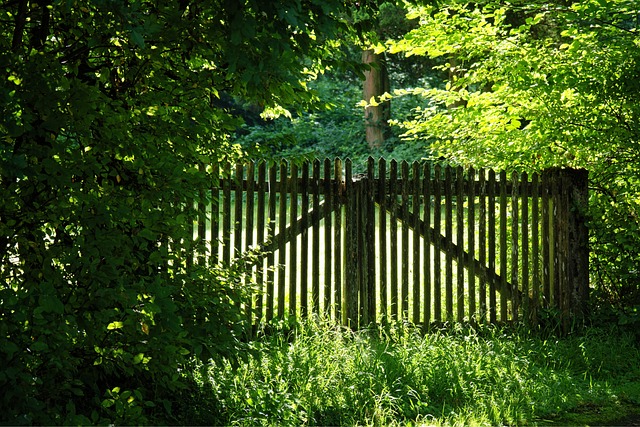In New Bedford, MA, the pursuit of sustainable living has extended to outdoor spaces, with eco-friendly fencing materials gaining traction. This trend not only enhances the aesthetic appeal of properties but also offers a myriad of benefits for both residents and the environment. The following article delves into the world of sustainable fencing options, exploring their advantages, popular choices, and long-term value. By embracing these eco-conscious alternatives, New Bedford communities can contribute to a greener future while creating functional and beautiful barriers.
- Eco-Friendly Fencing Materials: An Overview for New Bedford
- Benefits of Choosing Sustainable Fences in MA
- Popular Eco-Options for Residential and Commercial Use
- Longevity, Cost-Effectiveness, and Environmental Impact
Eco-Friendly Fencing Materials: An Overview for New Bedford
In New Bedford, MA, the shift towards eco-friendly fencing materials is gaining traction as residents and local authorities seek sustainable alternatives to traditional fencing options. These innovative materials not only contribute to environmental preservation but also offer aesthetically pleasing solutions for landscaping. From recycled plastic to natural fibers, a plethora of eco-friendly options are now available in the market.
Recycled content, such as plastic bottles and wood pallets, is being transformed into durable fencing panels, reducing waste and offering long-lasting performance. On the other hand, organic materials like bamboo, hemp, and sugarcane provide a renewable and biodegradable alternative. These natural fibers are not only strong but also contribute to improved soil health when composted at the end of their lifespan.
Benefits of Choosing Sustainable Fences in MA
Choosing eco-friendly fencing materials offers numerous benefits for residents and businesses in New Bedford, MA. First, sustainable fences contribute to environmental preservation by reducing the carbon footprint associated with traditional fencing options. These materials are often made from recycled or renewable resources, minimizing the demand for new raw materials and lessening the impact on local ecosystems.
Additionally, sustainable fencing provides long-term cost savings. While initial installation costs might be slightly higher, these fences require minimal maintenance and have extended lifespans compared to conventional options. They resist rot, rust, and pests, ensuring they remain sturdy and visually appealing for years without needing frequent replacements or repairs. This longevity translates into reduced expenses over time, making sustainable fencing a practical and environmentally conscious choice for New Bedford properties.
Popular Eco-Options for Residential and Commercial Use
In recent years, there’s been a growing trend towards eco-friendly fencing materials in New Bedford, MA, catering to both residential and commercial needs. Among the popular choices are recycled plastic and composite fences. These materials, made from reclaimed plastics and wood fibers, offer durability and low maintenance, making them ideal for busy property owners. They also come in various styles and colors, ensuring aesthetic appeal while promoting environmental sustainability.
Another favored option is natural, organic fencing, such as bamboo or hemp-based products. These options are not only sustainable but also provide excellent privacy and security. Bamboo, with its rapid growth rate, is a renewable resource that offers a robust and visually appealing fence. Hemp-based fences, on the other hand, are known for their flexibility and natural resistance to rot and pests, making them cost-effective and eco-conscious choices for New Bedford properties.
Longevity, Cost-Effectiveness, and Environmental Impact
Eco-friendly fencing materials offer a compelling combination of longevity, cost-effectiveness, and environmental benefits. These innovative options, often made from recycled or renewable sources like bamboo, wood chips, or plant fibers, are designed to withstand harsh weather conditions while maintaining their structural integrity for years. Unlike traditional fences that may require frequent replacement, eco-friendly alternatives can last for decades with minimal maintenance, reducing waste and saving homeowners significant costs over time.
Moreover, the environmental impact of these materials is significantly lower than conventional fencing. By using sustainable resources, these products minimize deforestation and reduce carbon emissions associated with manufacturing. They also contribute to a healthier ecosystem by providing habitats for local wildlife and promoting biodiversity. In New Bedford, MA, where conservation efforts are vital, opting for eco-friendly fences not only enhances the aesthetic appeal of properties but also aligns with the city’s commitment to sustainable practices.
